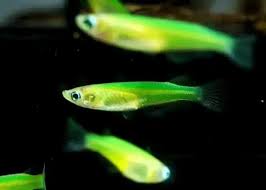Chinese tea culture is a profound tradition that has been passed down for centuries. While much attention is given to the type of tea leaves, teaware, and brewing techniques, one often overlooked but crucial factor is the quality of water used in brewing. The right water can enhance the aroma, taste, and mouthfeel of tea, while poor-quality water can diminish its natural flavors.
This article explores the importance of water in Chinese tea brewing, the characteristics of ideal brewing water, the different water sources available, and how to prepare the best water for brewing fresh Chinese tea.
1. The Importance of Water in Brewing Chinese Tea
Tea is composed mostly of water—about 98% of the final infusion—making it the primary medium that extracts and carries the tea’s flavors, aromas, and health benefits. The quality of water directly influences:
- Aroma – High-quality water allows tea to release its full fragrance.
- Taste – The balance of minerals affects how the tea tastes—either enhancing or masking its natural sweetness, bitterness, or umami flavors.
- Texture and Clarity – The right water gives tea a smooth mouthfeel and maintains the clarity of the liquid.
- Chemical Interactions – Some minerals in water interact with tea polyphenols and amino acids, affecting both the tea’s color and taste.
2. Characteristics of the Best Water for Brewing Chinese Tea
The best water for brewing Chinese tea should possess the following characteristics:
1. Softness: Soft to Moderately Hard Water
Water hardness refers to the concentration of dissolved minerals, primarily calcium (Ca²⁺) and magnesium (Mg²⁺). The best tea water should be soft or moderately hard, ideally between 30-80 mg/L of total dissolved solids (TDS).
- Too Soft (TDS < 30 mg/L): Water that is too soft may lack the necessary minerals to enhance the tea’s taste, resulting in a flat and dull infusion.
- Moderately Hard (TDS 30-80 mg/L): Provides a balanced mineral content that brings out the tea’s natural flavors.
- Too Hard (TDS > 120 mg/L): Hard water with excessive minerals can cause a bitter taste and dull the tea’s brightness.
2. pH Balance: Slightly Acidic to Neutral (pH 6.5 – 7.5)
The pH of water affects how tea compounds dissolve and interact.
- pH 6.5 – 7.5: Best for tea brewing as it preserves natural sweetness and aroma.
- pH < 6.5: Too acidic, may make tea taste sour.
- pH > 7.5: Too alkaline, can create an unpleasant aftertaste.
3. Purity: Free from Chlorine, Heavy Metals, and Impurities
Tap water often contains chlorine and other disinfectants that can ruin the delicate aroma of tea. Additionally, heavy metals and other pollutants should be avoided.
- Use filtered water to remove chlorine and impurities.
- Avoid distilled water, as it lacks minerals necessary for good tea extraction.
4. Oxygen Content: Fresh and Well-Aerated Water
Water should contain sufficient dissolved oxygen to enhance the tea’s liveliness and aroma. Stale or over-boiled water loses oxygen, making tea taste flat.
- Use fresh, natural spring water or boil water only once before use.
3. Comparing Different Water Sources for Brewing Chinese Tea
1. Spring Water – The Best Choice
Natural spring water is highly regarded in Chinese tea culture because it closely resembles the water sources used historically in tea-growing regions.
- Pros: Contains balanced minerals, good oxygen levels, and enhances tea’s flavor.
- Cons: Can be expensive or hard to find.
2. Filtered Tap Water – A Practical Alternative
Filtered water is an accessible and economical choice for daily tea brewing.
- Pros: Removes chlorine and impurities while retaining beneficial minerals.
- Cons: Some filters may remove too many minerals, making the water too soft.
3. Bottled Water – Varies by Brand
Not all bottled water is suitable for tea. Some brands contain high TDS or excessive minerals that affect tea taste.
- Best choice: Brands with TDS 30-80 mg/L and a pH of 6.5-7.5.
- Avoid: Water labeled as “mineral water” with excessively high mineral content.
4. Distilled Water – Not Recommended
Distilled water lacks the necessary minerals, making the tea taste weak and lifeless.
- Pros: Very pure, free of contaminants.
- Cons: Does not extract tea flavors effectively.
5. Well Water – Depends on the Source
Well water can be a good option if it is naturally soft and free from contaminants.
- Pros: Can be rich in natural minerals.
- Cons: May contain too much iron or other elements that alter tea taste.
4. How to Prepare the Best Water for Tea Brewing
Step 1: Choose the Right Water Source
Select fresh spring water, filtered water, or a bottled brand with appropriate mineral content.
Step 2: Filter or Aerate the Water
- Use a carbon filter to remove chlorine from tap water.
- Pour water back and forth between containers to increase oxygen levels.
Step 3: Heat the Water to the Right Temperature
Different teas require different water temperatures:
- Green Tea: 75-85°C (167-185°F) to preserve delicate flavors.
- Oolong Tea: 85-95°C (185-203°F) to extract balanced aromas.
- Black and Pu-erh Tea: 95-100°C (203-212°F) to unlock bold flavors.
Step 4: Avoid Over-Boiling
Do not let water boil for too long, as it will lose oxygen and become “flat.”
Step 5: Store Water Properly
- Use glass or ceramic containers for storing water.
- Avoid plastic containers, as they can alter taste.
5. Traditional Chinese Views on Water for Tea
In ancient China, tea masters placed great emphasis on water quality. The famous Tang Dynasty poet and tea connoisseur Lu Yu (陆羽), in his book The Classic of Tea (茶经), classified water sources:
- Mountain Spring Water – The best choice.
- River Water – Acceptable but varies in quality.
- Well Water – The least preferred due to potential contamination.
Conclusion
Water is a crucial yet often overlooked factor in brewing Chinese tea. Selecting soft to moderately hard water, maintaining proper mineral balance, ensuring freshness and oxygen content, and heating to the right temperature all contribute to an exceptional tea experience. Whether using spring water, filtered tap water, or bottled water, making informed choices will enhance the natural flavors of fresh Chinese tea, allowing tea drinkers to fully appreciate its rich history, aroma, and taste.










